
19 Books from 2019
Every year I do it for you, my dear readers: I head deep into the dangerous world of the library to snatch out the choicest books and introduce you to profound, entertaining, and educational reads. For the last several years I’ve summarized my best reads of the year. This year I’m happy to present to you 19 books from 2019. Peruse these books, daydream about your future reading list, and if you need more suggestions, check out 15 books from 2015, 16 books from 2016, 17 books from 2017, or 18 books from 2018.
A note on ratings: the star ratings given to each book are intentional. Five stars indicates that a book is profound, paradigm-shaping, or exceptional in some significant way. Few books that I have ever read receive this rating. I rarely, if ever, reread a book that did not receive five stars. Four stars indicates a very solid, good, and valuable read, well worth one’s time. A three star book is average, probably worth reading if one is deeply interested in the subject. Two stars indicates a below-average book with a few good qualities. One star books are a complete waste of time.
Note: click the picture of the book to go to the Amazon page for it.
(1) For the Love of India: The Story of Henry Martyn (5 stars) Jim Cromarty
In 1805, Henry Martyn headed to India as a chaplain of the British East India Company. Seven years later he was dead, an unmarried missionary without any apparent converts. Martyn’s story is the ultimate story of sweet sadness, broken dreams, and unrequited love, but it is also the story of a faithful servant of Christ who longed for his life to be used by God. This book will move you, challenge you, rebuke you, and maybe even make you cry. But that’s okay. In the process, you might learn more about a God worth trusting.
(2) 1 Kings: The Wisdom and the Folly (5 stars) Dale Ralph Davis
Little did I know, when I first picked up this book, that it would become one of my favorite Biblical commentaries ever. Nor did I know that Dale Ralph Davis would take his place as my favorite Old Testament commentator. But it’s true. Davis provides the perfect blend of application and insight, explanation and illustration. He specializes in Old Testament narrative, and his writing style is both edifying and enjoyable – this is the sort of book that you can’t wait to get back into. I’m very much looking forward to reading the next book, “2 Kings: The Power and the Fury.”
(3) Built to Last: Successful Habits of Visionary Companies (5 stars) Jim Collins
Some organizations are passing phenomena, but others are built to last. What distinguishes them? This book lays out the essential characteristics of organizations that have passed the test of time. You may not be in business, but this is still a helpful book, since an ‘organization’ refers to any group of people organized together (business, charity, church, family, etc.). Reading the book in this light, you suddenly gain insight into why some families thrive and others fail, some churches expand at the expense of others, and so on. Take your time to digest this book and think through the significant implications.
(4) Didn’t See It Coming: Overcoming the Seven Greatest Challenges That No One Expects and Everyone Experiences (4.5 stars) Carey Nieuwhof
We all face challenges in our lives, but sometimes we don’t see them coming. The surprising thing about some challenges is that they are so common that you can almost guarantee you will face them – challenges like cynicism, compromise, disconnectedness, irrelevance, pride, burnout, and emptiness. In this book, Carey Neiuwhof explains these challenges and presents helpful ways to avoid them. The reading is easy and insightful, and this book is worth your time.
(5) An Army at Dawn: The War in North Africa, 1942-1943 (4.5 stars) Rick Atkinson
America’s first major campaign against the Nazis was launched in North Africa, on desert battlefields in Tunisia and Libya. Though overshadowed by future fighting in France, it was a pivotal part of the Second World War, and the fate of the future lay in those battles. This book presents a well-researched and fascinating read of the campaign, from the big battles to the tactical blunders (landing planes at enemy airports!) to the shifting allegiances (Vichy France fought for both sides). Note: this book contains some language, readers beware.
(6) Here I Stand: A Life of Martin Luther (4.5 stars) Roland Bainton
I’m quite familiar with the story of Luther, so when I decided to pick up this book, I wasn’t expecting anything out of the ordinary. I was pleasantly surprised. This book is fascinating history, painting a compelling portrait of Luther and his times. It’s a joy to read, and it reminded me of why I find the Reformation to be such an intriguing time.
(7) Why Nations Fail: The Origins of Power, Prosperity, and Poverty (4 stars) Acemoglu and Robinson
I headed into this book wanting to know why governments go broke or coups take place. What I got wasn’t quite what I expected, though this volume does describe the root causes of things like that. Rather, this is one of those rare books that describes the vital relationship between economy and politics. Too often, these are treated as separate subjects, but they really are not. This is an involved read and the theory that it presents is complex. In fact, I think that even this complexity is somewhat oversimplified, but if you have an interest in the relationship between economics and politics, I think you’ll find it interesting.
(8) The Man Christ Jesus: Theological Reflections on the Humanity of Christ (4 stars) Bruce Ware
We all know that Christ is the God-man, but we often focus more on the ‘God’ side of the equation. Without diminishing that important reality, Bruce Ware provides a reality check, revealing that the New Testament places a surprising emphasis on the humanity of Christ. This book is sure to shake up your thoughts about Jesus. By the end, you will still be orthodox, but you will understand Jesus better, and you will be amazed by the important application that Christ’s humanity provides for the Christian life. I highly recommend this short read.
(9) The Great Awakening: The Roots of Evangelical Christianity in Colonial America (4 stars) Thomas Kidd
During the Great Awakening, God’s Spirit did marvelous things in the pre-Revolutionary American colonies. This book sets out to document those marvels. It provides a fair and balanced history of a turbulent time. Surprisingly, not everything from the Great Awakening was good. As I read this book, I was startled to see how Satan worked counterfeit religion alongside the true. Still, the Awakening was a remarkable period, and it did much to set America along the trajectory that she still follows somewhat: a western nation in which religion maintains a prominent role.
(10) Awakening the Evangelical Mind: An Intellectual History of the Neo-Evangelical Movement (4 stars) Owen Strachan
By the middle of the twentieth century, American Christianity was facing a catastrophe. The fundamentalism of the previous decades had removed Christian influence from higher learning and much of society. Modernism had invaded the nation, and fundamentalism was apparently tottering. How much longer could it hold up? In this volume, Strachan (a favorite professor of mine) describes the heroic battle waged by a handful of evangelical academicians. Their goal was profound: to create a new movement – modern evangelicalism – that could hold its own in the academic realm without giving an inch to liberalism. While modern evangelicalism has turned out to have its own weaknesses, this is still a fascinating book, and it shows how God can use the scholar to advance the Kingdom.
(11) God’s Kingdom Through God’s Covenants: A Concise Biblical Theology (4 stars) Gentry and Wellum
Today there is debate over the best way to understand the storyline of the Scripture. In this short volume – an abridgment of Gentry and Wellum’s longer volume, ‘Kingdom through Covenant’ – the authors present the case for ‘progressive covenantalism.’ Despite the scary name, the idea is simple: the storyline of the Bible is about God building his kingdom, using covenants that progressively reveal God and His work in the world. This volume is a great introduction to the subject, and a must-read if you want to better understand the storyline and essential unity of Scripture.
(12) Brave New War: The Next Stage of Terrorism and the End of Globalization (4 stars) John Robb
Modern technology is such that anyone can wage war against conventional armies – and potentially win. Drawing on the insurgency in Iraq, this book argues that we have entered a new phase in warfare – ‘fourth generation warfare’ – and the battles of the twenty-first century will be increasingly fought by proxies, ‘global guerillas’, and mercenaries. We now have the ability to wage ‘open source warfare,’ and the result will be increasing attacks on global infrastructure, aimed at overthrowing national economies and de-legitimizing governments. While this book is somewhat dated – and not all of its predictions have come about – it is still a fascinating ‘behind the scenes’ approach to modern warfare.
(13) Christianity and Liberalism (3.5 stars) Gresham Machen
This book, first published in 1923, dissects two important belief systems. This is not a political book but a religious book, and the reference to ‘liberalism’ refers not to the modern political ideology, but rather the religious view characterized by higher criticism. Machen argues that Christianity and Liberalism, while both claiming to be ‘Christian,’ are fundamentally different religions, differing in every way from each other. Only one of these religions presents the message of Jesus. The other is a man-made, man-centered ‘gospel’ that can lay no legitimate claim to the teachings of Jesus Christ.
(14) Performing Under Pressure: The Science of Doing Your Best When It Matters Most (3.5 stars) Weisinger and Pawliw-Fry
We all face pressure at different points, so its wise to prepare in advance. While stress refers to the tenseness and difficulty of situations, pressure refers to those moments where everything is on the line. This book presents numerous helpful strategies to prepare for these moments, and it describes the mindset that must be intentionally cultivated if you will succeed at those junctures.
(15) Revival and Revivalism: The Making and Marring of American Evangelicalism 1750-1858 (3.5 stars) Iain Murray
‘Revival’ has been a common theme throughout American evangelical history. Even today, some churches still hold ‘revival meetings.’ In this meticulously researched volume, Iain Murray traces the history of revival and argues that, somewhere around the 1830s, the definition of ‘revival’ began to change into something more like ‘revivalism.’ The traditional view of revival as a miraculous and unforseeable outpouring of God’s Spirit to convert sinners began to give way to a new approach in which conversions could be anticipated, planned, and even helped along by human ingenuity. If you want to understand how the modern church got where it is, you should read this book.
(16) Redemption Accomplished and Applied (3.5 stars) John Murray
God is working to save every one of his people. This book explains how he does that and what the different phases look like. In ‘Redemption Accomplished and Applied,’ Murray walks through the very phases of salvation, all the way from effectual calling to the final phase, glorification. Along the way, he explains how redemption is accomplished – through the atonement. This is a relatively short read and packed with great theology. Plus, it’s a classic, first published in 1955 and reprinted dozens of times since.
(17) The Story of Christianity, Vol. 2: The Reformation to the Present Day (3 stars) Justo Gonzalez
The story of Christianity from the time of the reformation is no small story, especially if you wish to include all the branches of so-called Christianity, in all the different parts of the world. This book tackles that assignment, and does it as well as could be hoped. It’s an interesting bird’s-eye view of history, and it’s well worth the read for those who want that perspective.
(18) The Well Balanced World Changer: A Field Guide for Staying Sane while Doing Good (3 stars) Sarah Cunningham
This book is ‘a field guide for staying sane while doing good,’ and sometimes, that is exactly what you need. With so many causes to devote yourself to, and so much good that needs to be done in this world, it can be easy to burn out in a good cause. Cunningham provides a multitude of simple, helpful ideas for how to maintain your passion for good over the long haul. This is an easy and enjoyable read for anyone who struggles to balance their sanity with their dreams.
(19) Serve the Community of the Church: Christians as Leaders and Ministers (3 stars) Andrew Clarke
This book aims to understand how first century Jews and Gentiles understood authority, examining the authority structures of both the Greco-Roman city and the Jewish synagogue. By understanding these structures better, we can better understand how first-century listeners would have thought about Jesus’ teaching on leadership. The results show that his teaching was truly radical, and leadership in the church demands that we ‘serve’ the community of the church. This book was interesting to read and helped me better understand authority structures in the time of the New Testament.
If you need more suggestions, check out 15 books from 2015, 16 books from 2016, 17 books from 2017, or 18 books from 2018!


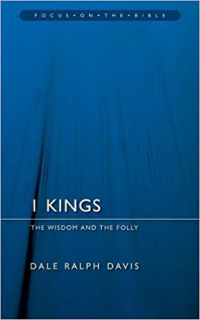
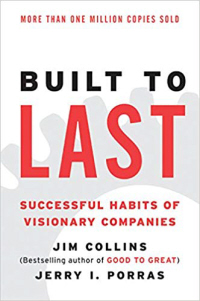
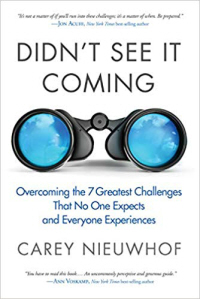

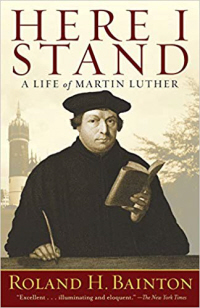
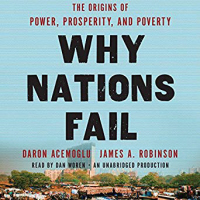
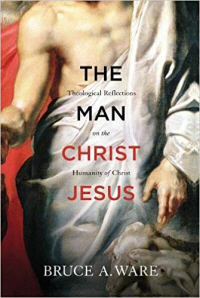


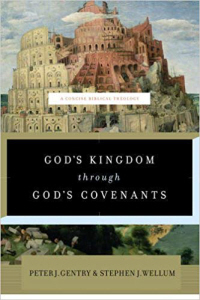
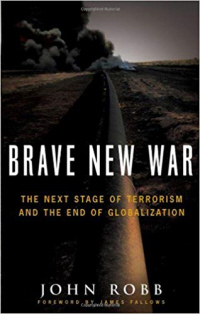
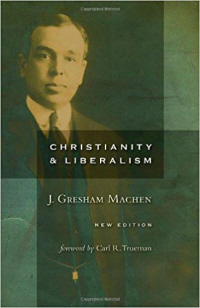

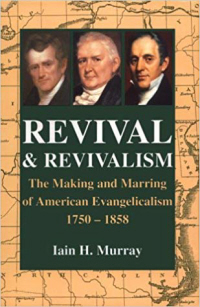

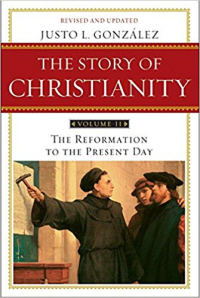
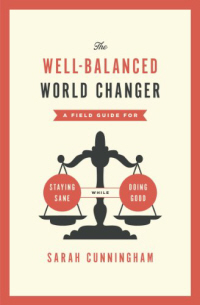
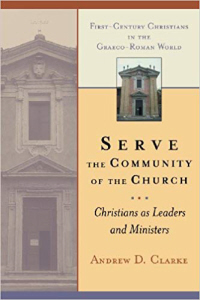



People like Everet Derkson and others of great statesmanship are no where to be found. Surely there are men alive today who can provide answers to the challenges, that if left unanswered, will let the forces of evil destroy our humanity.
God is soverign and faithful. Perhaps we are at the time of the call of The Trumpet when The Dead in Christ shall rise… Great trouble is looming, and I pray that God will raise up some people of faith and wisdom to answer the challenges and provide leadership, and help us to go forward. Books on this sort of important subject matter would be good now.